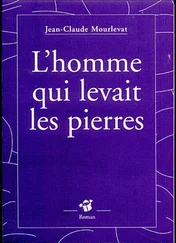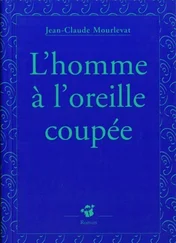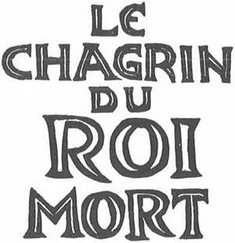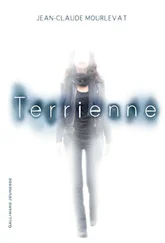Jean-Claude Mourlevat - Winter's End
Здесь есть возможность читать онлайн «Jean-Claude Mourlevat - Winter's End» весь текст электронной книги совершенно бесплатно (целиком полную версию без сокращений). В некоторых случаях можно слушать аудио, скачать через торрент в формате fb2 и присутствует краткое содержание. Год выпуска: 2010, ISBN: 2010, Издательство: Candlewick, Жанр: Старинная литература, на английском языке. Описание произведения, (предисловие) а так же отзывы посетителей доступны на портале библиотеки ЛибКат.
- Название:Winter's End
- Автор:
- Издательство:Candlewick
- Жанр:
- Год:2010
- ISBN:9780763651749
- Рейтинг книги:5 / 5. Голосов: 1
-
Избранное:Добавить в избранное
- Отзывы:
-
Ваша оценка:
- 100
- 1
- 2
- 3
- 4
- 5
Winter's End: краткое содержание, описание и аннотация
Предлагаем к чтению аннотацию, описание, краткое содержание или предисловие (зависит от того, что написал сам автор книги «Winter's End»). Если вы не нашли необходимую информацию о книге — напишите в комментариях, мы постараемся отыскать её.
Winter's End — читать онлайн бесплатно полную книгу (весь текст) целиком
Ниже представлен текст книги, разбитый по страницам. Система сохранения места последней прочитанной страницы, позволяет с удобством читать онлайн бесплатно книгу «Winter's End», без необходимости каждый раз заново искать на чём Вы остановились. Поставьте закладку, и сможете в любой момент перейти на страницу, на которой закончили чтение.
Интервал:
Закладка:
“I’m not allowed to talk to you,” the woman repeated. “I’ll be back tomorrow.”
She picked up the tray and went away.
Alone again, Catharina lay on her back for a long time with her eyes wide open, in a very strange, dreamy state. She could have sworn that she knew the woman’s voice.
Passing the time was difficult. Catharina exhausted all possible games. She tried to remember poetry she had learned as a child. She went through the names of all the countries in the world in alphabetical order, then boys’ first names, then girls’ first names, then trees and animals. How much time did all that take? Hours or minutes? How could she know? Do mental arithmetic . . . Why not, after all? She started saying her multiplication tables.
On the second day, the same woman came back, and it was all just as it had been the day before. The only difference was that she had boiled potatoes instead of beans.
On the third day — had her hearing grown sharper? — Catharina thought she could just hear the sound of mealtimes in the refectory above her: footsteps, plates and cutlery clinking, chairs being pulled over the floorboards. But the sounds were so faint that she didn’t know if she was imagining them or not.
On the fourth day, when she was about to light her fourth match, she struck it clumsily and the flame went out at once. This tiny incident plunged her into deep despair. That same day the small woman stopped dead in the open doorway as she was leaving the cell and asked, “Is your name Pancek?”
“Yes,” replied Catharina.
The woman stood there perfectly still for a few more seconds, saying no more, and then she went away.
On the fifth day, Catharina began coughing, and she had a sore throat. She realized that she was finding it more and more difficult to keep count of the days she had spent in the cell. Everything in her head was completely mixed up. The only certain way she could check was by counting the number of matches she had left, because she burned only one a day, and she couldn’t prevent herself counting them over and over again. Three matches left . . . three. Three more days when I can see the Sky . . . and then what? Where would she find the strength to keep going after that?
On the sixth day, the woman stopped in the doorway again and continued with the question she had been asking the day before. It was as if she had thought of nothing else since.
“Pancek — Catharina Pancek?”
“Yes,” said Catharina. She was sitting on the bunk, trembling feverishly.
There was a long silence, and then the woman said, “It’s nine in the evening. I always come at nine in the evening. I’ll leave the jug of water close to the door for you. I’ll be back tomorrow.”
That voice . . . Just for a second Catharina felt she would be able to put a name to the woman any moment now; it would spring to her lips. She had it on the tip of her tongue, deep in her heart. But as soon as the door closed again, she knew the name had escaped her and she couldn’t remember it. She had confused dreams. They were full of fires, the sound of keys turning, swarms of insects, and the Tank shouting, “I beg your pardon?” She searched for the matchbox in her hair for at least an hour before remembering that it had been in her coat pocket since the first evening.
On the seventh day, she couldn’t get up when her tray was brought in. The woman came over to her, put her flashlight down on the bunk, and helped her to sit up. “You must eat, Miss Pancek,” she said.
Catharina sat there with her teeth chattering. The little woman helped her to drink, then put the spoon in her right hand, but her fingers were trembling so badly that the entire contents fell on her lap. Then the woman took the spoon and fed her like a baby.
Once she had swallowed the first mouthful, they stayed sitting there side by side. The woman appeared to be hesitating.
“Don’t you recognize me?” she murmured at last.
“I recognize your voice,” said Catharina, hardly surprised to hear the gentle tone in which the woman spoke. “But it’s so long ago. . . .”
The woman picked up the flashlight and shone its faint beam on her own face. “Can you see me better now?”
Catharina raised her head and narrowed her eyes. But the sad, heavy face meant nothing to her.
“I knew your father well,” the woman went on, and her voice was unsteady. “His name was Oskar Pancek. I worked for him as a maid.”
“My father?”
“Ah yes, your father. He was a fine man. He was very good to me.”
“I don’t remember anything. . . .”
“Or look at me this way,” said the woman, turning her face to show her right cheek. “Do you remember me better now?”
The whole right side of her face was covered by a birthmark, a large port-wine stain. It ran from the middle of her forehead all down her cheek, covering half her mouth and jaw.
“Theresa,” Catharina murmured. The three syllables escaping her mouth spread an instant gentle softness through the cell. “Theresa,” she repeated. It was like a door opening or a veil being lifted. She saw herself in a large drawing room with a sweet tobacco smell in the air. The curtain of the open bay window was moving in the breeze. Someone was playing the piano, a bearded man wearing a velvet jacket. His fingers caressed the piano keys. She could see him only in profile and came closer to climb up on his knees. “Oh, Cathia, leave your father in peace!” said a voice, and Theresa was bending over her to pick her up.
“My father . . . did he play the piano?” Catharina ventured. Her heart was racing.
“Yes, yes, he did,” replied the woman, rising to her feet.
At the door she stopped again, and added, in a voice full of sadness, “Yes, he played the piano, but only for his own pleasure. Most of all he was a great mathematician. And a great figure in the Resistance. I’m not allowed to talk to you. Here are your glasses, your watch, and your hairbrush. I’ll put them down beside the jug of water.”
Catharina thought she was about to leave now, but the woman hadn’t quite finished yet. “There’s no one watching the place tonight. After one in the morning, there’ll be no one on supervision duty in the school.”
Catharina sat there for a long time, feeling stunned as she took in what the woman had just told her in those few words, and above all realizing that the key had not turned in the lock. She staggered over to the door, ran her fingers over the inside of it, and pulled it toward her. It opened easily. Emotion made her fall on all fours. She groped for the jug of water, found her hairbrush, her watch, and her glasses, and put the glasses on at once.
I’m free, she told herself as her thoughts raced through her head. I’m free. I have my glasses and my watch back. . . . There’s no one on supervision duty tonight. . . . My father was a great mathematician and a great figure in the Resistance. . . . I still have one match left for a look at the Sky.
Trembling all over in spite of her coat and the blanket, she lay down on the bunk. She fell asleep and woke up again more than five times before she thought the right amount of time might have passed. As best she could, she pulled the bunk over to stand under the beam, climbed on it, and struck the eighth and last match. Her watch said nearly two o’clock. For the first time she was seeing the Sky with her glasses on, and she was amazed to find what a vivid blue it was. The white cloud was like a huge feather bed.
She drank from the jug again, trembling with fever, and went along the mud-brick tunnel, stepping carefully. My consoler, she told herself. I must go to her. I must get there somehow. Every step she took echoed painfully in her head. She climbed the damp spiral staircase, groping her way up it. She had gone about halfway when the door above her creaked. The beam of a flashlight fell into the stairway. Someone was climbing down. Was it Theresa coming back? Someone else? In panic, she just had time to take refuge in the space to her left by the cellar entrance. Flattening herself against the wall, she held her breath.
Читать дальшеИнтервал:
Закладка:
Похожие книги на «Winter's End»
Представляем Вашему вниманию похожие книги на «Winter's End» списком для выбора. Мы отобрали схожую по названию и смыслу литературу в надежде предоставить читателям больше вариантов отыскать новые, интересные, ещё непрочитанные произведения.
Обсуждение, отзывы о книге «Winter's End» и просто собственные мнения читателей. Оставьте ваши комментарии, напишите, что Вы думаете о произведении, его смысле или главных героях. Укажите что конкретно понравилось, а что нет, и почему Вы так считаете.












